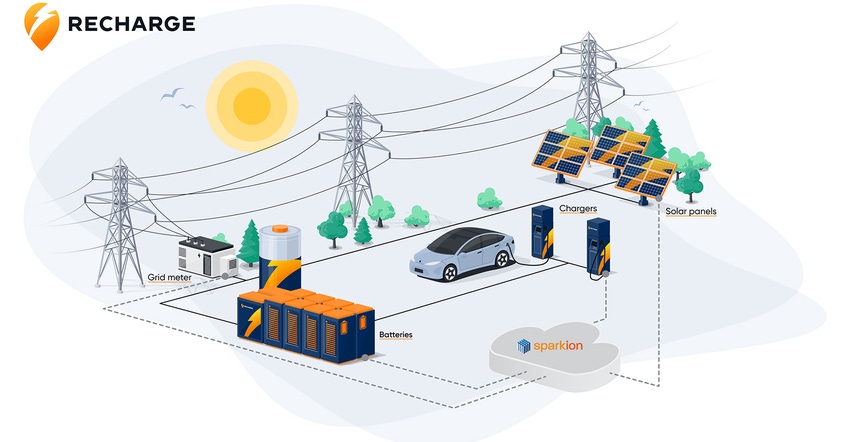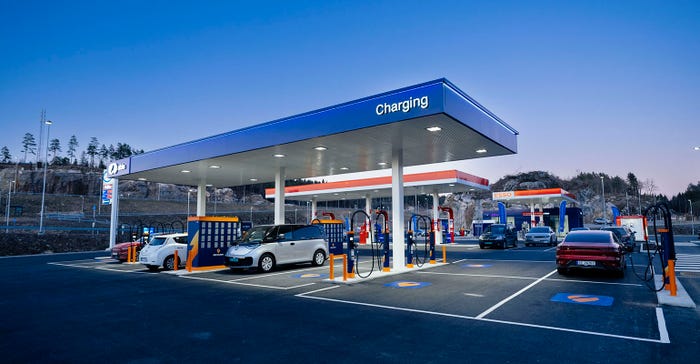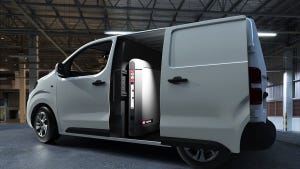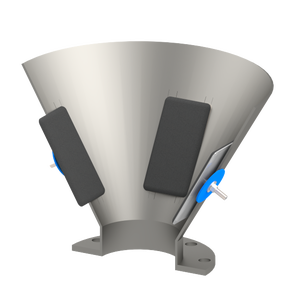Recharge and Sparkion: Transforming Charge Points into Power Plants
Discover how Recharge and Sparkion collaborate to transform charge points into battery-powered power plants, enhancing grid stability and green energy solutions.
January 17, 2024

Recharge has partnered with Sparkion to provide energy management solutions. Recharge’s 4500 charge points at more than 800 locations across the Nordics can become battery-powered power plants, increasing power grid stability and reducing the need to build more grids.
The Nordic countries are a window into the future; in Norway, 82.4 percent of new cars sold in 2023 were electric. Recharge is a charge point operator in this market with 4,500 charge points at 800 locations in Norway, Sweden, Finland, and Denmark.
The company is now expanding its business, taking a more significant role in the green transition by utilizing its investments for the grid and providing an even better customer experience:
“Our plans for the future is to not only be a charge point operator. We want to turn our charging stations into battery-powered power plants, making Recharge an energy company that provides significant support to the electricity grid. By doing this, we deliver on our ambition to be the most socially responsible charge point operator,” stated Recharge CEO Håkon Vist.

Each month, 300.000 charging sessions are made at Recharge stations. Courtesy of Recharge.
Recharge is partnering with Sparkion to make this happen. Sparkion will provide energy management services needed to:
Utilize energy from batteries installed at Recharge’s charging stations in locations where the grid operator cannot provide the necessary power for high power charge points.
Enable Recharge to participate in the ancillary services market of the national transmission system operators (TSOs).
The successful implementation of these services can be followed by:
Flexibility services to local power grid operators (DSOs) – meaning that Recharge can reduce the power consumption of their charging stations to stabilize local power grids.
Installation of solar panels at the charging stations. The solar power can either directly charge cars at Recharge stations or be stored in batteries at the charging stations.
“Sparkion is excited to make Recharge one of the first charge point operators anywhere in Europe or the US with battery-powered charging stations that provide ancillary services,” stated Adi Eyal, CEO of Sparkion. “We look forward to strengthening our partnership in the coming months.” The two companies will roll out their innovative joint solutions at selected charging stations in Sweden in 2024. The locations are yet to be disclosed.
Benefits of battery-powered charging stations:
Reduces the need to build more power grid capacity for charging stations, leading to lower grid tariffs for electricity customers.
National transmission systems operators get a new resource for creating stable frequencies in their grid – this will support using renewable energy sources, such as wind, in the system.
EV drivers get access to better-charging networks because charging stations can be built in places where the grid otherwise can’t support high-power charging.
Solar panels with local storage will further reduce charging stations' use of the power grid and reduce the need for power plants to produce electricity for charging stations.
About the Author(s)
You May Also Like





